
A visa is a conditional authorization granted by a polity to a foreigner that allows them to enter, remain within, or leave its territory. Visas typically include limits on the duration of the foreigner's stay, areas within the country they may enter, the dates they may enter, the number of permitted visits, or if the individual can work in the country in question. Visas are associated with the request for permission to enter a territory and thus are, in most countries, distinct from actual formal permission for an alien to enter and remain in the country. In each instance, a visa is subject to entry permission by an immigration official at the time of actual entry and can be revoked at any time. Visa evidence most commonly takes the form of a sticker endorsed in the applicant's passport or other travel document but may also exist electronically. Some countries no longer issue physical visa evidence, instead recording details only in immigration databases.

A biometric passport is a traditional passport that has an embedded electronic microprocessor chip, which contains biometric information that can be used to authenticate the identity of the passport holder. It uses contactless smart card technology, including a microprocessor chip and antenna embedded in the front or back cover, or centre page, of the passport. The passport's critical information is printed on the data page of the passport, repeated on the machine readable lines and stored in the chip. Public key infrastructure (PKI) is used to authenticate the data stored electronically in the passport chip, supposedly making it expensive and difficult to forge when all security mechanisms are fully and correctly implemented.

An Indonesian passport is a travel document issued by the Government of Indonesia to Indonesian citizens residing in Indonesia or overseas. The main governing body with regards to the issuance of such passport(s), possession(s), withdrawal and related matters is the Directorate General of Immigration under the Ministry of Law and Human Rights. Indonesia does not recognize multiple citizenship for its citizens and such citizens will automatically lose their Indonesian citizenship if another citizenship is acquired voluntarily. Special exceptions allow newly born citizens to hold dual nationalities until his/her eighteenth birthday after which a choice of either nationalities should be decided. The latest Indonesian passport has different national birds and sceneries on each page.

A Norwegian passport is the passport issued to nationals of Norway for the purpose of international travel. Beside serving as proof of Norwegian citizenship, they facilitate the process of securing assistance from Norwegian consular officials abroad.

Swedish passports are issued to nationals of Sweden for the purpose of international travel. Besides serving as proof of Swedish citizenship, they facilitate the process of securing assistance from Swedish consular officials abroad.
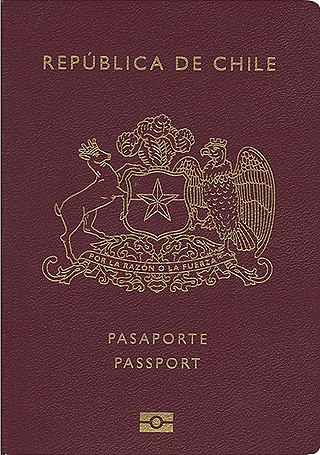
Chilean passport is an identity document issued to citizens of Chile to facilitate international travel. Chilean passports are valid for worldwide travel and facilitate the access to consular services whilst abroad. They are issued by the Registro Civil e Identificación.
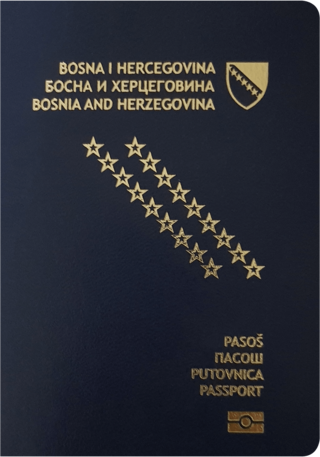
Visa requirements for Bosnia and Herzegovina citizens are administrative entry restrictions by the authorities of other states placed on citizens of Bosnia and Herzegovina.

The Lebanese passport is a passport issued to the citizens of the Republic of Lebanon to enable them to travel outside the Republic of Lebanon and entitles the bearer to the protection from the diplomatic missions and consulates of the Republic of Lebanon if necessary. It is issued exclusively by the Lebanese Directorate General of General Security (DGGS), and can also be issued at various Lebanese diplomatic missions and/or consulates outside the Republic of Lebanon. It allows the bearer a freedom of living in the Republic of Lebanon without any immigration requirements, participate in the Lebanese political system, entry to and exit from the Republic of Lebanon through any port, travel to and from other countries in accordance with visa requirements, facilitates the process of securing consular assistance abroad from the diplomatic missions and consulates of the Republic of Lebanon if necessary, and requests protection for the bearer while abroad.

Maldivian passport is a proof of citizenship, issued by Maldives Immigration, to all the nationals of the Maldives for international travel. The current passport, the 2nd generation e-passport, was launched on 24 January 2016. This passport consists of a highly secured poly-carbonate data page with laser engraved photos and data. Each visa page of the passport has a different design, represented with numerous illustrations by the Maldivian local artist, Hussain Ali Manik. A Maldivian Passport can be issued to any Maldivian citizen who applies for a passport.
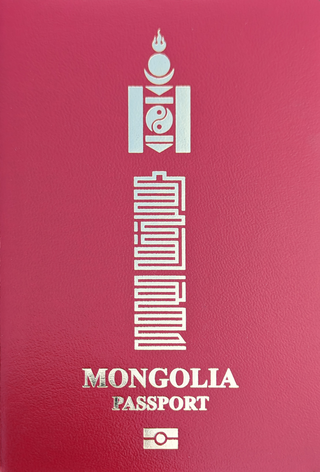
Visa requirements for Mongolian citizens are administrative entry restrictions by the authorities of other states placed on citizens of Mongolia.
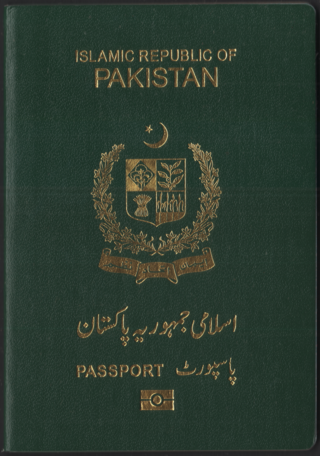
Visa requirements for Pakistani citizens are the requirements by other countries to obtain a visa before entry on an ordinary Pakistani Passport.

Visa requirements for Iraqi citizens are administrative entry restrictions by the authorities of other states placed on citizens of Iraq.

Visa requirements for Tuvaluan citizens are administrative entry restrictions by the authorities of other states placed on citizens of Tuvalu. As of 20 December 2020, Tuvaluan citizens had visa-free or visa on arrival access to 127 countries and territories, ranking the Tuvaluan passport 45th in terms of travel freedom according to the Henley Passport Index.

Sri Lankan passports are issued to citizens of Sri Lanka for the purpose of international travel. The Department of Immigration and Emigration is responsible for issuing Sri Lankan passports.

The visa policy of Singapore deals with the requirements a traveller must meet to enter Singapore. A foreign national, depending on their country of origin, must meet certain requirements to obtain a visa, which is a permit to travel, to enter and remain in the country. A visa may also entitle the visa holder to other privileges, such as a right to work, study, etc. and may be subject to conditions.

Visa requirements for Comorian citizens are administrative entry restrictions by the authorities of other states placed on citizens of Comoros.
Biometrics refers to the automated recognition of individuals based on their biological and behavioral characteristics, not to be confused with statistical biometrics; which is used to analyse data in the biological sciences. Biometrics for the purposes of identification may involve DNA matching, facial recognition, fingerprints, retina and iris scanning, voice analysis, handwriting, gait, and even body odor.
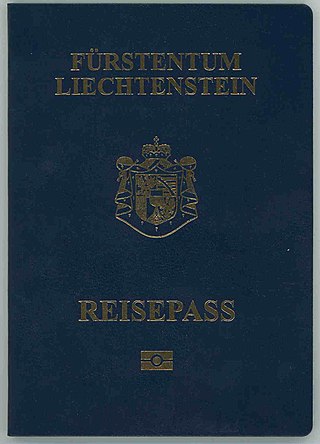
Visa requirements for Liechtenstein citizens are administrative entry restrictions by the authorities of other states placed on citizens of Liechtenstein. As of March 2023, Liechtenstein citizens had visa-free or visa on arrival access to 180 countries and territories, ranking the Liechtenstein passport 12th in terms of travel freedom overall, and the lowest of the EFTA member states, according to the Henley Passport Index.

Visa requirements for Andorra citizens are administrative entry restrictions by the authorities of other states placed on citizens of Andorra. As of 11 January 2024, Andorran citizens had visa-free or visa on arrival access to 172 countries and territories, ranking the Andorran passport 19th in terms of travel freedom according to the Henley Passport Index.
Visa requirements for Bhutanese citizens are administrative entry restrictions by the authorities of other states placed on citizens of Bhutan. As of 2 July 2019, Bhutanese citizens had visa-free or visa on arrival access to 52 countries and territories, ranking the Bhutanese passport 92nd in terms of travel freedom according to the Henley Passport Index.


















